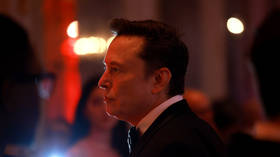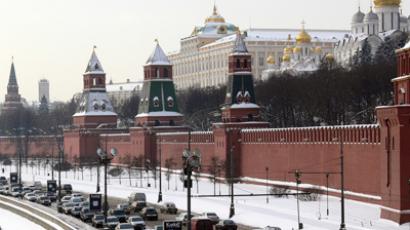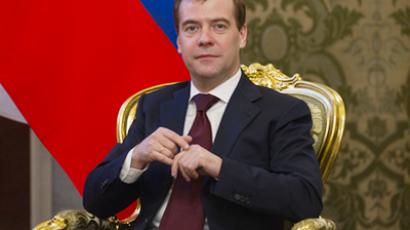Government commission lays out Russia's development strategy

Russian Prime Minister Vladimir Putin has held a conference with a group of experts devoted to the strategic program of Russia’s development up to the year 2020.
Putin on Tuesday told a group of top government officials and economic experts that he was satisfied with Russia’s economic development, but said the country still faced numerous challenges that the architects of the development strategy must take into account. The Prime Minister advised the government to establish social guarantees for the people, making an increase in the rate of life expectancy top priorities when developing the strategy draft.He also mentioned the importance of embracing modernization and increasing the rate of labor productivity.The first such conference took place on February 16, when Putin and experts outlined a range of tasks for the program’s development – in modernization of the economy, improving social standards and the state bureaucracy system. The head of the Russian government also charged the work group with the task of ensuring that the discussion of the strategy is open and transparent, with regular updates on the dedicated websites. Putin also stressed that regardless of the turns the discussion might take, the strategic goal of the program must remain the same – raising the living standards for Russian citizens, innovation and development of market institutions. The government will hear the reports on the strategy development every quarter and the final decision on the document will be taken in 2012. The government’s press service said that the task of setting the mid-term and long-term perspective is now the nation’s priority as a number of structural economic problems remain in the country even though the crisis symptoms have already been overcome. The government especially noted the high wear and tear of infrastructure, low workforce productivity and lack of competitiveness.The experts have prepared a report on possible development scenarios and the paper will be presented to the government after being reviewed by First Deputy Prime Minister Igor Shuvalov. The report describes five possible scenarios of development from even stronger centralization of power to liberalization up to restoring the elections of regional governors. The elections of heads of Russian regions were replaced by direct appointment by the head of the state in 2005 in a bid to bring more order to political life and allow the nation to concentrate on development. Authors of the report have stated that the existing system is in its crisis phase and suggested, among other variants, to bring back the regional elections – either immediately or gradually and under the constant control of the central governing bodies.The social part of the strategy is also connected with the problem of regional differentiation. As living standards in different parts of the Russian Federation vary greatly, the authors of the report suggest broadening the regional tax basis to boost the autonomy of the regional authorities as well as giving them a stimulus for more intensive development. Here, the experts also offered Moscow authorities the chance to choose the level of regional independence from a very varying scale. Most importantly, the report suggested the introduction of a real estate tax, both on land and on structures, which will be set by regional authorities without any limitation. The federal real estate tax will also remain and the two taxes will be levied on one centralized tax base. There are also softer options and more radical ones that provide for new personal taxes on regional level and imposing the tax on basic funds on the territorial basis (as opposed to the present situation when businesses are taxed where they are registered).














